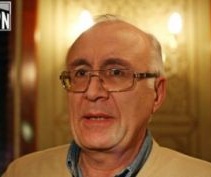TBILISI, DFWatch–Georgia is hoping for an easing of visa rules for those of its citizens who plan to visit Russia.
This was one of the things that came out of a phone conversation between the two diplomats who are handling the political contact between the countries;
Zurab Abashidze, the Georgian Prime Minister’s Special Representative for Relations with Russia, and Gregory Karasin, Deputy Foreign Affair Minister of Russia.
According to Georgia’s Foreign Ministry, Abashidze said he hopes that during his next meeting with Karasin in June, there will be agreement about specific details of simplified visa rules between the two states.
Diplomatic relations between Georgia and Russia were suspended after the war in August, 2008. Since then, there have been held talks in Geneva periodically, with the participation of the international community, to discuss the situation in Georgia’s disputed territories.
After the change of government in the country, Abashidze was appointed to his current post and has so far held two meetings with Karasin, the outcome of which was a decision to allow Georgian products back onto the Russian market.
At their final meeting, the parties noted progress in trade and humanitarian issues.
Abashidze told DF Watch that the next meeting will probably be held in Prague and will deal with steps taken by the parties since the last meeting.
He says in this regards ‘real results are seen’ and these are issues of returning wine, mineral water and agriculture products to the Russian market.
“We also try to get route of Kazbegi and Larsi to function so that those trade relations and export of Georgian product won’t have problems in this regards,” he noted. “Zemo-Larsi-Kazbegi check-point works 24 hours.”
At the previous meeting, Karasin said those in Moscow are thinking of how to simplify visa rules with Georgia, and he now hopes that at the next meeting more details will become clear.
“It is about simplifying visa rules, but not abolishing them for certain categories of citizens,” he said.






Leave A Comment
You must be logged in to post a comment.